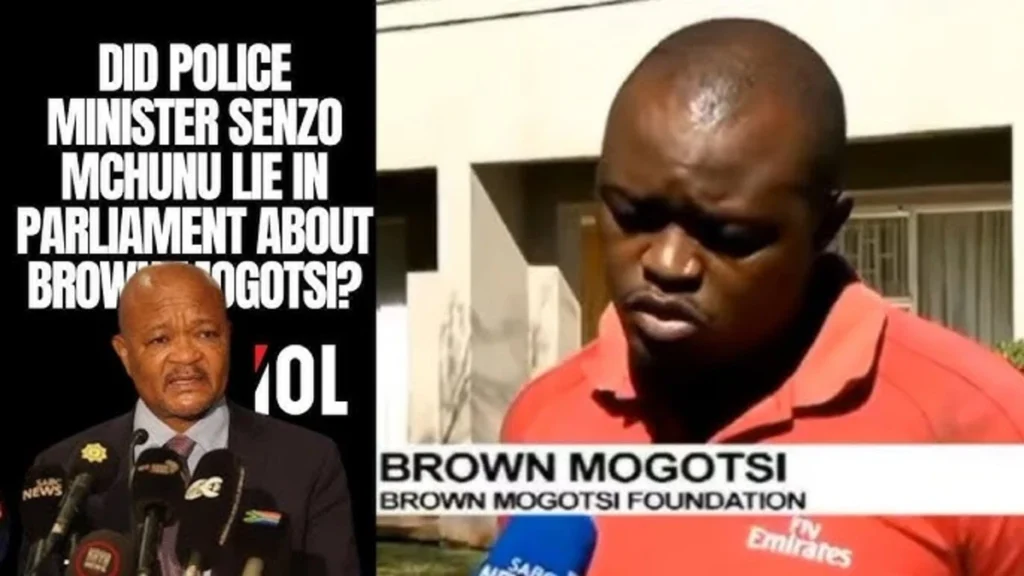Police Minister Senzo Mchunu has come under fire for inconsistent public statements regarding his relationship with Brown Mogotsi, a politically connected figure accused of meddling in police operations. Mchunu’s reversal — from denying knowledge of Mogotsi to admitting he is a “comrade” — has triggered sharp criticism and mounting calls for an independent investigation.
Initially, Mchunu told Parliament on March 5 that he had no association with Mogotsi after being shown a photograph of him. “I don’t know this person,” he claimed during a formal inquiry. However, just weeks later, he changed his tone, saying, “He is just a comrade, not an associate.”
This sudden shift in narrative has alarmed Professor Jean Steyn, a policing expert, who believes the change signals more than simple confusion. “Such a dramatic reversal raises red flags,” Steyn said. “It appears to be a strategic recalibration, suggesting the original version may have deliberately withheld information.”
Political Influence and Justice in the Crosshairs
The controversy deepens with allegations made by KwaZulu-Natal police commissioner Lieutenant-General Nhlanhla Mkhwanazi. He claims Mchunu and other top officials have ties to a criminal network linked to drug cartels and politically exposed individuals. One such figure is businessman Vusimuzi Matlala, who faces murder charges and is accused of securing police tenders through shady means.
Mchunu denies any association with Matlala. “I’ve never met or spoken to him,” the minister said. Yet, he confirmed launching a review into a South African Police Service (SAPS) tender awarded to Matlala, which was later cancelled. While distancing himself, Mchunu appears entangled in a web of suspicious interactions.
Steyn also pointed to concerns surrounding Mogotsi’s involvement in discussions about disbanding a police task team focused on political killings — a role well outside his non-official status. “That kind of interference compromises institutional independence,” Steyn warned, stressing the need for investigators to be shielded from political pressure.
In a letter to National Police Commissioner Fannie Masemola, Mchunu instructed that the political killings task team be dismantled, stating that it was “no longer required.” However, Masemola publicly denied authorizing or signing off on such a directive.
Further tensions rose over leaked WhatsApp messages allegedly exchanged between Mogotsi and Matlala. The messages reportedly discuss “protecting political interests” and “targeting investigators,” which Steyn says could represent a conspiracy to obstruct justice. “It’s a chilling reflection of how political connections may be used to subvert the law,” he noted.
Steyn emphasized the urgent need for an independent inquiry and protective safeguards for those involved in sensitive investigations. He also highlighted the importance of President Cyril Ramaphosa’s response, which could set the tone for broader reforms. “This might be the moment to establish a judicial commission,” he said.
Meanwhile, the Democratic Alliance (DA) has announced plans to lay criminal charges against Mchunu. They accuse him of misleading Parliament and interfering with police operations, with formal charges expected to be filed at Cape Town Central Police Station.
As the pressure mounts, the situation underscores the fragility of institutional trust and the ongoing battle between political influence and justice in South Africa.






